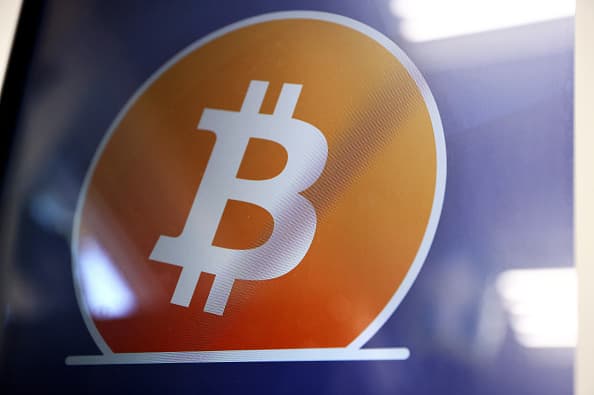A lawyer for the New York couple accused of an “extraordinarily complex” scheme to launder $4.5 billion in stolen bitcoin argues in a court filing that they are not a flight risk because, among other things, they want to stay near their frozen embryos.
Morgan and her husband, Ilya “Dutch” Lichtenstein, “previously froze several of her embryos at a hospital in New York in anticipation of starting a family together, as she can only conceive through in vitro fertilization because she suffers from endometriosis,” lawyer Samson Enzer wrote in the filing.
“The couple would never flee from the country at the risk of losing access to their ability to have children, which they were discussing having this year until their lives were disrupted by their arrests in this case,” Enzer wrote.
The attorney also argued that Morgan, an aspiring rapper under the name Razzlekahn, and Lichtenstein, who holds dual U.S. and Russian citizenship, are not a flight risk given the fact that they “both stayed put in their residence in lower Manhattan … even after the Government’s investigation targeting them in this case” several months ago.
The filing came in advance of the couple’s scheduled bail hearing in U.S. District Court in Washington, D.C., on Friday, when Judge Beryl Howard will review their bail conditions imposed after they were arrested Tuesday at their residence.
Morgan, 31, and the 34-year-old Lichtenstein are accused of an alleged conspiracy to launder $4.5 billion worth of bitcoin that was stolen in 2016 during the hack of the virtual currency exchange Bitfinex. They are not charged with the hack itself.
The Justice Department said Tuesday that it has seized more than $3.6 billion worth of bitcoin linked to that hack, which was in crypto wallets under the couple’s control. That is the largest financial seizure ever by the department.
At the time of the breach, the hacker transferred nearly 120,000 bitcoins into a crypto wallet that Lichtenstein in January of this year was found to have access to, according to prosecutors.
Although the bitcoin in that wallet was worth just $71 million at the time of the hack, its value had grown to more than $4.5 billion by January.
Enzer said Judge Beryl Howell should maintain the bail conditions imposed by Tuesday by Manhattan federal court Judge Debra Freeman, who set bond at $5 million for Lichtenstein and $3 million for Morgan, with the conditions of home incarceration and location monitoring devices.
That bail ruling was temporarily blocked by Howell late Tuesday after prosecutors urged her to do so, arguing that they are a flight risk.
Prosecutors in their emergency request had said that although authorities had seized “the majority of the stolen funds” from the hack, “there are at least 24 virtual current addresses linked to the hack [and believed to be in the Defendants’ control] for which law enforcement does not posses the private keys.”
Those addresses contain about 7,500 bitcoin, “which is currently valued at over $328 million.”
“The Defendants are sophisticated cyber criminals and money launderers who present a serious risk of flight and should be detained pending trial,” prosecutors wrote.
But Enzer in his filing to Howell said, “Judge Freeman correctly decided that the Government has failed to meet its burden of showing that there are no bail conditions that would reasonably assure that Ms. Morgan and Mr. Lichtenstein will appear as required for further court proceedings in this case.”
“This Court should uphold Judge Freeman’s well-reasoned bail rulings.”
Enzer wrote that the couple was notified in November by an internet service provider that prosecutors had served a grand jury subpoena on the provider “a year earlier seeking records pertaining to them.”
And on Jan. 5, the lawyer noted, “The Government had law enforcement agents execute a search warrant at their New York residence.”
“Although federal agents seized Mr. Morgan’s and Mr. Lichtenstein’s travel documents, numerous electronic devices, and other property from their home on January 5 (and left a copy of the warrant indicating that it was granted as part of an investigation into money laundering conspiracy and other alleged offenses), the couple took no steps to flee,” Enzer wrote.
The lawyer added that the couple “continued to remain at home” during telephone and email discussions between Enzer and federal authorities, who “provided a written summary of its alleged money laundering theory pertaining to our clients.”
Enzer also wrote that, “Ms. Morgan and Mr. Lichtenstein have no reason to flee to avoid the Government’s allegations, as the Government’s complaint reveals significant holes in the Government’s case against them, especially as to Ms. Morgan,:
“The money laundering accusations in the Government’s complaint are predicated on a series of circumstantial inferences and assumptions drawn from a complex web of convoluted blockchain and cryptocurrency tracing assertions,” the lawyer wrote.
If the couple is held without bail, Enzer argued, it will severely limit their ability to cooperate with their lawyer to prepare their defense at trial, and pose “potentially grave health risks for” Morgan, who is recovering from surgery to remove a lump from her breast on Jan. 31.
Morgan also would be at heightened risk of Covid-19 if kept jailed, as she suffers from asthma and “has pre-existing lung damage from a prior bout of Middle East Respiratory Syndrom, or ‘MERS,'” the lawyer wrote.
